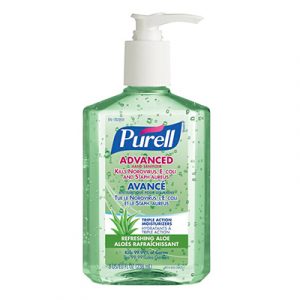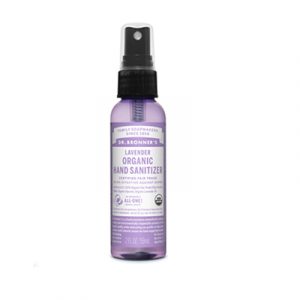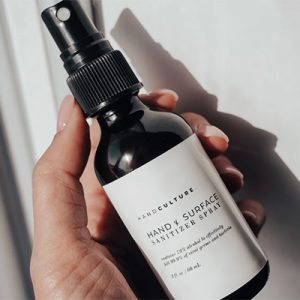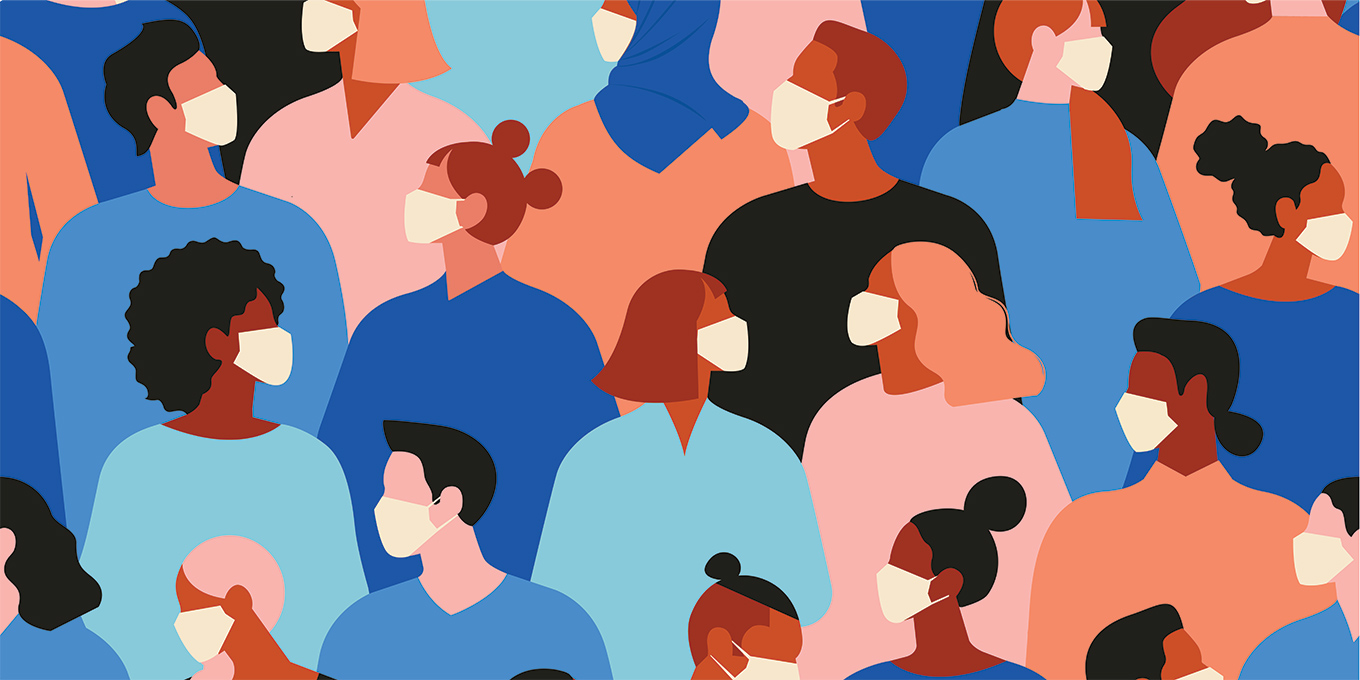With COVID-19 causing a rapidly changing public health crisis on a never-before-seen global scale, information – and misinformation – abounds. Here’s what to know about coronavirus prevention, including what is and isn’t true.
WHAT IS THE BEST WAY TO PREVENT THE NEW CORONAVIRUS?
At risk of stating the obvious, the best way to prevent illness is to avoid exposure to the novel coronavirus. “We have a pretty good body of evidence to suggest this virus spreads by what we call the droplet method, which means it’s not aerosolized and not sort of percolating through the air,” explains Dr. Abdu A. Sharkawy, MD, assistant professor of medicine at the University of Toronto and an infectious diseases specialist at Toronto Western Hospital. That means maintaining distance from others – staying at least six feet away whenever possible – is key.
Practicing proper hygiene is also non-negotiable. So, if you’ve watched a thousand smoky-eye tutorials but have never once thought about your handwashing technique – yup, there’s an official right way to do it – it’s time to get acquainted.
At minimum, you need to scrub your hands for at least 20 seconds before and after eating, after using the washroom, and after contact with the external environment, whether you’re touching doorknobs or other high-contact surfaces, says Dr. Sharkawy. “I would estimate that’s [washing your hands] potentially several times an hour.”
Using soap and water is the most effective, but an alcohol-based hand sanitizer is a good Plan B if lathering up is not an option. Also, since most of us can’t keep our hands off something germier than a toilet seat – our phones – don’t forget to wipe down and disinfect your gadgets, too.
WHAT IS THE MOST EFFECTIVE HAND SANITIZER?
The most crucial thing to look for in a hand sanitizer is whether it is at least 60 percent alcohol, as recommended by organizations like the Centers for Disease Control and Prevention (CDC). Hand sanitizers with less than 60 percent alcohol – even if it’s full of supposedly germ-zapping essential oils – won’t cut it.
Alcohol-based hand sanitizers work by disrupting what’s considered the Achilles’ heel of the coronavirus: its lipid-based outer coating. Keep in mind that hand sanitizer isn’t as effective if there’s visible dirt or a lot of grease on your hands. In that case, you’re better off soaping up (which works for the same reason – it disrupts the virus’s lipid bilayer).
SHOULD I WEAR A FACE MASK?
UPDATE: On April 6, Dr. Theresa Tam, Canada’s Chief Public Health Officer, announced that the use of non-medical masks (such as homemade ones fashioned from bandanas or other cloth) can prevent people who are pre-symptomatic or asymptomatic, yet contagious, from unwittingly spreading the coronavirus. Note that such masks won’t protect you from exposure to the coronavirus, and you should still practice social distancing. Wearing one of these face masks tends to give people a false sense of security, says Dr. Sharkawy. “They may unknowingly touch their eyes or other parts of their face, and potentially introduce any virus they’re in contact with that way.” Medical-grade masks such as the N95 should still be reserved for medical professionals to use. Learn how to make your own non-medical, non-sew face mask here.
WOULD TAKING IMMUNE BOOSTERS, LIKE VITAMINS, PREVENT THE CORONAVIRUS?
Considering the world has only known about this new coronavirus for a few months, there’s no research to back up the effectiveness of taking any supplements, like vitamins or adaptogens marketed as immune-boosting. (Plus, the notion of whether we can even “boost the immune system” in such a way is controversial.)
“I don’t think these approaches are effective at all,” says Dr. Sharkawy. Right now, there are no natural health products authorized to protect against COVID-19, as Health Canada notes, so beware false or misleading claims. There’s no vaccine available yet either, but scientists are on the case.
DOES HAVING A STRONG IMMUNE SYSTEM HELP AT ALL?
It’s perfectly reasonable to take the usual common-sense steps to stay in good health. “We know adequate rest, adequate hydration and stress reduction are tremendously helpful in preventing a whole host of different health-related complications, including infection,” says Dr. Sharkawy. “So I would advocate for people to pay attention to those measures. They certainly make you healthier overall and will hopefully lessen your susceptibility to this virus and any virus.”
WHAT IS “SOCIAL DISTANCING”?
Social distancing is the phrase of the day, and the CDC defines it as avoiding crowded public places and mass gatherings, and staying at least six feet away from others whenever possible. This isn’t just to prevent us from catching the coronavirus as individuals; it’s a measure to stop it from whipping through the population and hitting the most vulnerable among us.
To illustrate the impact one person can make: In South Korea, a super-spreader known as Patient 31, who failed to practice social distancing despite symptoms of being sick, is suspected of causing 80 percent of COVID-19 cases in the country.
While Spain and Italy have instituted nationwide lockdowns, in Canada we’re currently still left to make individual choices about whether to nix dinner reservations, stop shopping at the mall and RSVP no to a BFF’s party.
Short answer: Yes, cancel everything. Avoid all “non-essential gatherings” (in the words of Dr. Theresa Tam, chief public health officer of Canada). Hunker down at home.
Here’s where to find more information on the coronavirus situation in Canada. Find three hand sanitizers with at least 60 percent alcohol below.
Purell Advanced Green Hand Sanitizer with Aloe

If you can still find it in stock at drugstores or other mass-market retailers, Purell Advanced Green Hand Sanitizer with Aloe is made with 70% ethyl alcohol, as well as moisturizing aloe.
Dr. Bronner’s Organic Hand Sanitizer Lavender

Dr. Bronner’s Organic Hand Sanitizer Lavender ($7.29 at well.ca, currently sold out) has enough ethyl alcohol (62%) to be effective against germs, plus organic lavender oil for the fresh scent.
Hand Culture Hand and Surface Sanitizing Spray

Made in Canada following WHO guidelines, Hand Culture Hand and Surface Sanitizing Spray ($18 at handculture.com, currently sold out) has 75% isopropyl alcohol, and can be used to clean hands and surfaces like door handles.
READ MORE:
Where to Find Information on Coronavirus in Canada
The Met Gala Has Been Postponed
Taylor Swift Urges Fans to Stay Inside During Coronavirus Outbreak
Newsletter
Join our mailing list for the latest and biggest in fashion trends, beauty, culture and celebrity.
Read Next

Fashion
Zendaya Welcomes Spring in a Retro Floral and Tulle Dress
Another day, another preppy tennis-core look.
by : Briannah Rivera- Apr 23rd, 2024

Culture
A Joe Alwyn Source Explains Why He Didn’t Want to Talk About Dating Taylor Swift
Following the release of The Tortured Poets Department, new insight about the British actor’s decision emerges.
by : Alyssa Bailey- Apr 23rd, 2024

Beauty
Tested and Approved: Your New Hydrating Skincare BFF
This new product has all of your skin’s thirst-quenching needs covered.
by : ELLE Canada- Apr 17th, 2024





